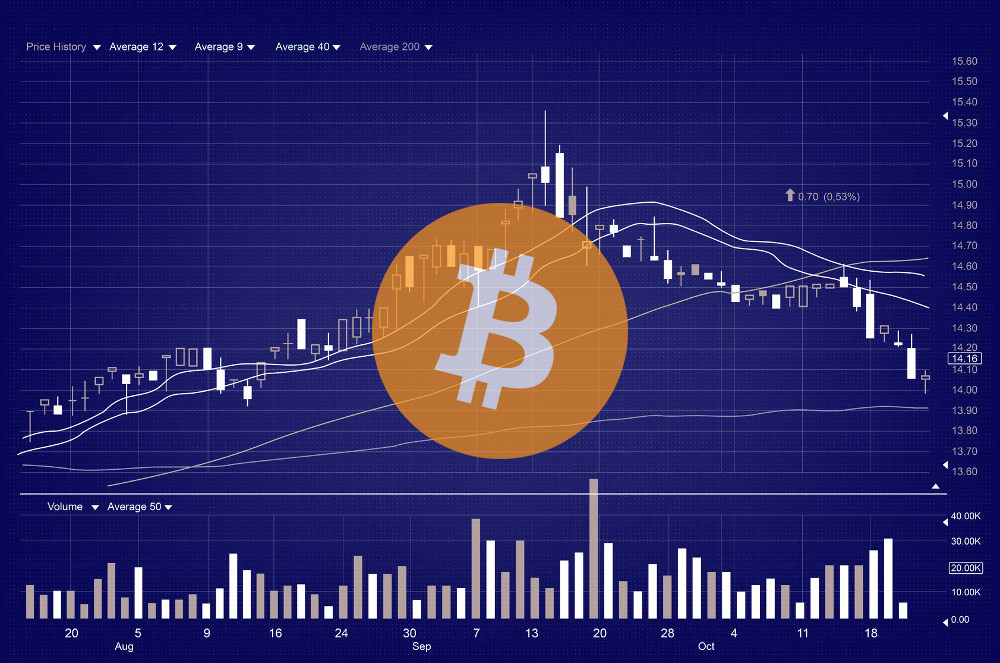Bitcoin prices are highly volatile, and this volatility can be a major obstacle for businesses and individuals that want to use the currency. In order to understand the reasons behind Bitcoin’s price volatility, it is important to first understand how the Bitcoin market works.
The Bitcoin market is decentralized, meaning that there is no one authority that controls the price of Bitcoin. Instead, the price of Bitcoin is determined by the supply and demand for the currency. When more people want to buy Bitcoin than sell it, the price goes up. When more people want to sell Bitcoin than buy it, the price goes down. For further information visit brexit-millionaire.org.
Another factor that contributes to Bitcoin’s price volatility is its limited supply. There are only 21 million Bitcoins in existence, and as more and more people start using the currency, the demand for Bitcoin will continue to increase. This could lead to even greater price volatility in the future.
Despite its volatility, Bitcoin remains a popular investment option, and many believe that its price will continue to rise in the future. However, it is important to remember that Bitcoin is a highly volatile investment, and it is not suitable for everyone. Before investing in Bitcoin, be sure to understand the risks involved.
Bitcoin price volatility has been a hot topic in the cryptocurrency world lately. Prices have been swinging up and down, sometimes by huge percentages, seemingly without any rhyme or reason. So, what’s causing all this volatility?
There are a few factors that could be contributing to Bitcoin’s wild ride. First of all, the overall market conditions could be playing a role. When the stock market is doing well, investors may move their money into cryptocurrencies like Bitcoin as a way to escape traditional investments. However, when the stock market takes a downturn, investors may sell their digital assets and cause prices to drop.
Another factor that could be influencing Bitcoin’s price is speculation. Many people are investing in Bitcoin purely out of speculation – they believe that the price will continue to go up, so they buy in now in order to make a profit later. However, if something happens to shake people’s confidence in Bitcoin (such as a major hack or regulatory crackdown), they may sell their coins at a loss, causing prices to plummet.
Finally, the overall supply and demand for Bitcoin could be affecting prices. If more people want to buy Bitcoin than there are coins available, the price will go up. Conversely, if more people want to sell Bitcoin than there are coins available, the price will go down. This is what’s known as a “seller’s market” and “buyer’s market.”
So, what’s causing Bitcoin’s volatility? There are a few possible factors, including overall market conditions, speculation, and the supply and demand for Bitcoin. However, it’s important to note that there’s no one definitive answer – it could be any or all of these factors that are causing prices to swing up and down.
Benefits of Bitcoin Price Volatility
Despite the fact that price volatility creates certain risks for holders of bitcoin, there are also a number of benefits associated with it.
First, volatility encourages traders to become more involved in the market, as they attempt to profit from price fluctuations. This leads to increased liquidity and a deeper market, which is beneficial for all participants.
In addition, volatility can create opportunities for hedging and arbitrage, which can result in additional profits for market players. Finally, volatility can also lead to more efficient price discovery, as traders continually reassess the value of bitcoin in light of new information. Altogether, these benefits make volatility an important part of the bitcoin ecosystem and help to ensure its robustness.
Risks Associated with Bitcoin Price Volatility
Despite the benefits of volatility, it also carries a number of risks. First, volatility can lead to large losses if a trader is caught on the wrong side of a price move. In addition, it can be difficult to predict future price movements, which can lead to inaccurate investment decisions.
Furthermore, volatility can also increase uncertainty and risk in the overall bitcoin market, which may deter some investors from participating. Finally, high levels of volatility can also lead to increased price manipulation and fraud. While these risks should not be ignored, they should also be weighed against the benefits of volatility when making investment decisions.

